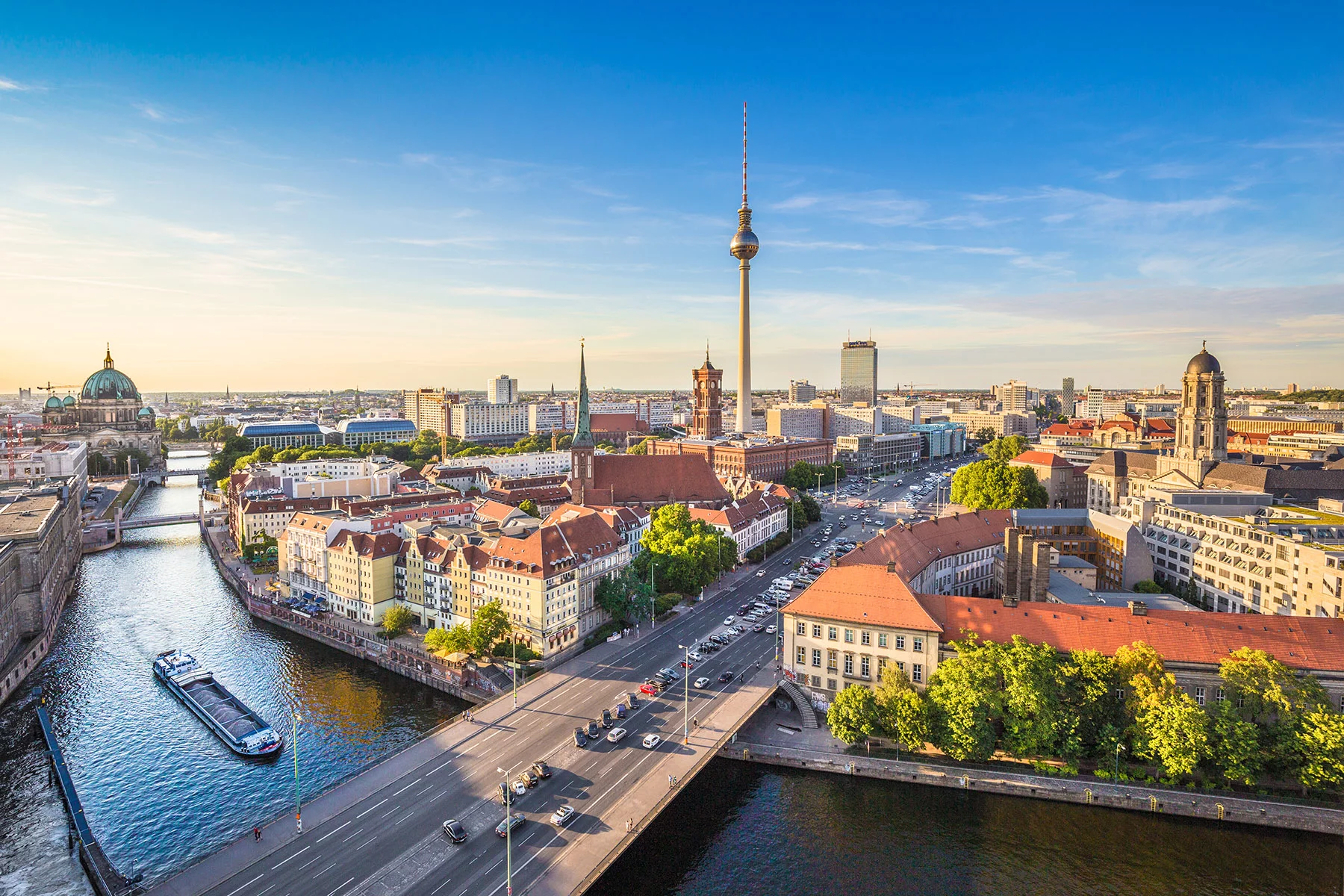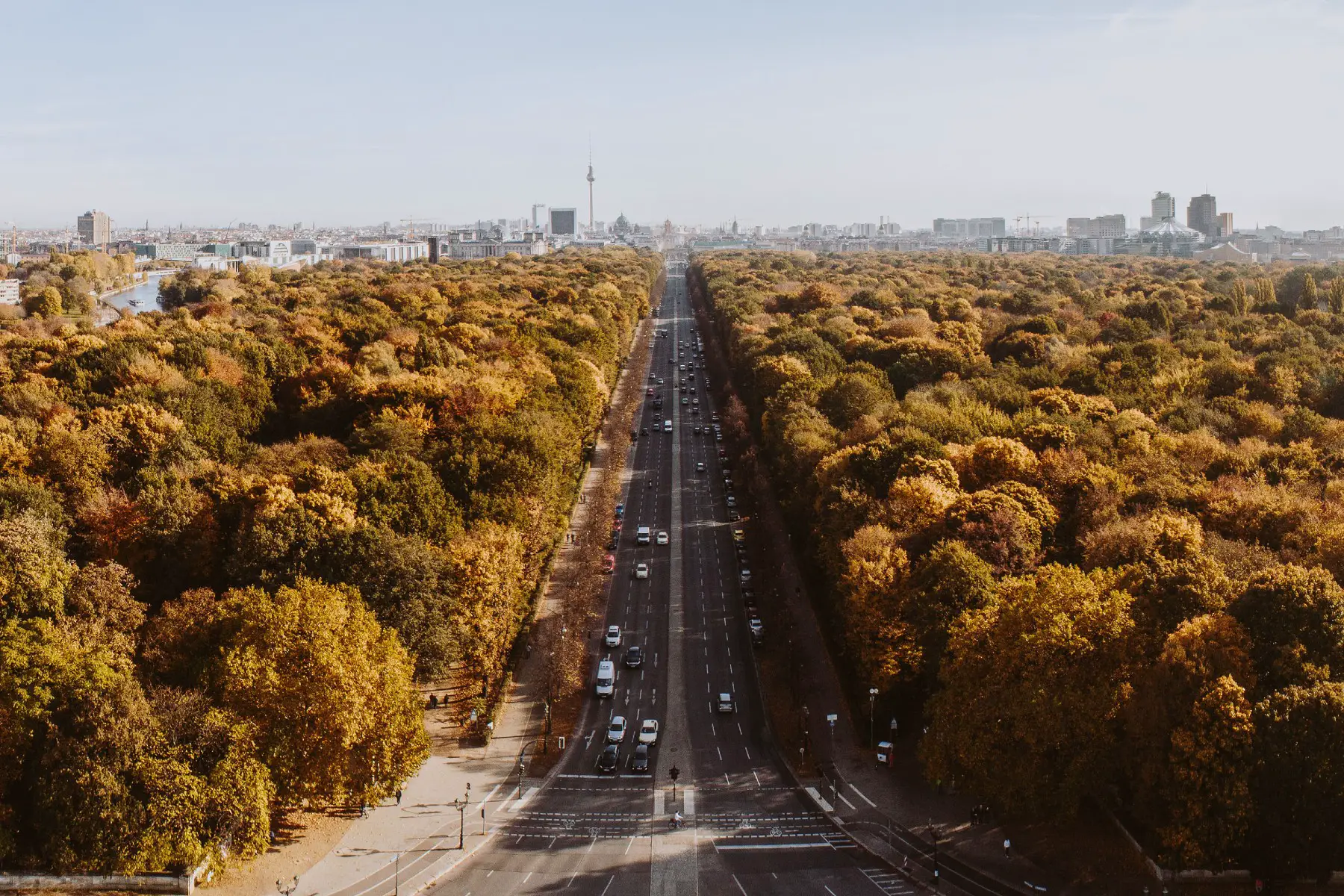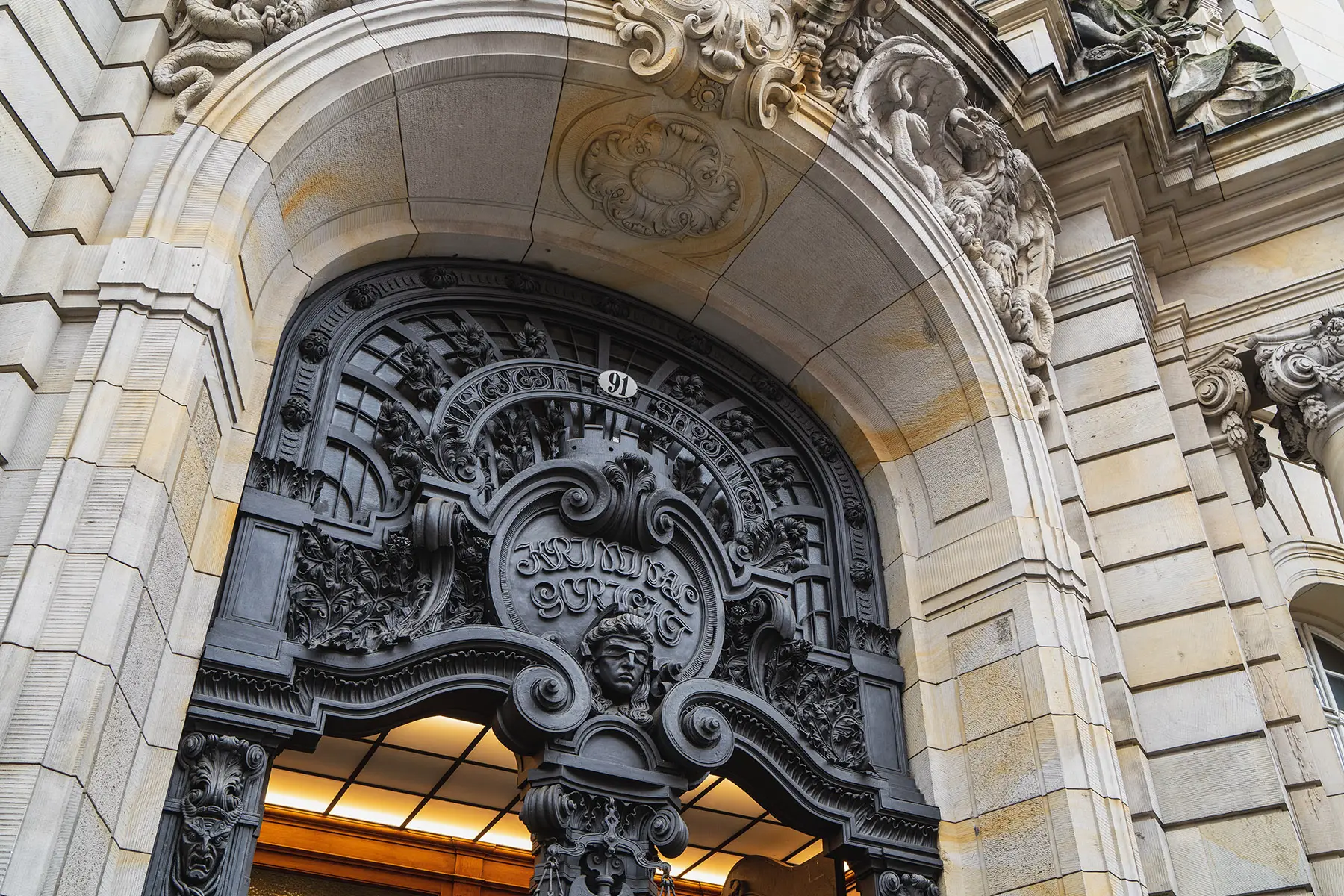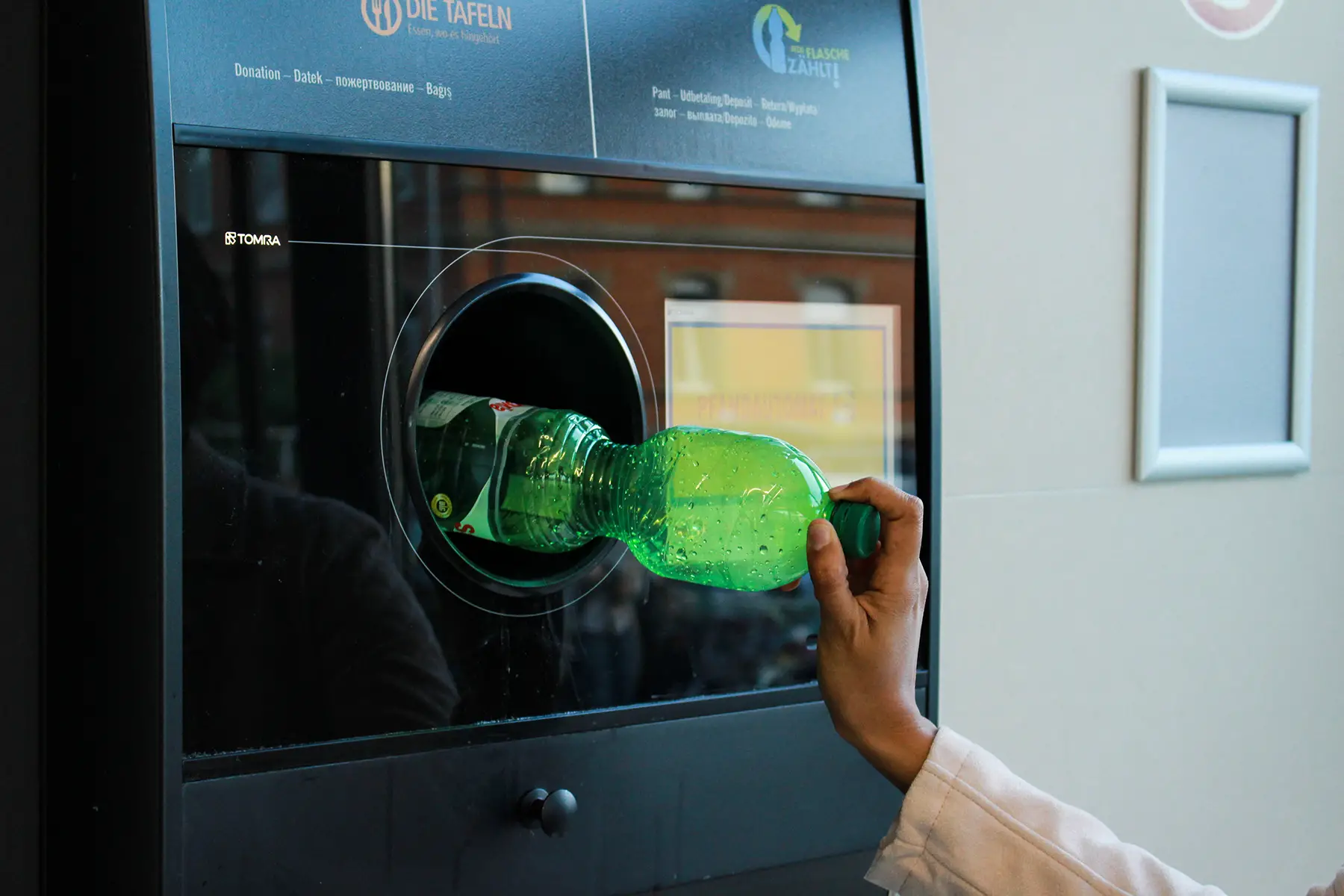Germany is famous for its beer, bratwurst, and precision engineering, but there’s so much more to this European powerhouse than meets the eye. Did you know that it has over 20,000 castles or that one of its towns is built inside a 15-million-year-old meteor crater?
From quirky laws to record-breaking landmarks, these fascinating facts about Germany will make you see the country in a whole new light:
Sirelo
It’s no secret that moving abroad can be stressful. Sirelo’s team of removal advisers is here to help. They provide five free quotes from international shipping companies so you can find the best options at the best prices. Take the stress out of your relocation to Germany with Sirelo.
Historical facts about Germany
Germany was the first in the world to adopt Daylight Saving Time
Daylight Saving Time (DST) might seem like an inconvenient modern quirk, but it was actually first proposed by Benjamin Franklin in the 18th century.
The idea didn’t really catch on until 1916, when, in the middle of World War I, Germany was the first country in the world to implement it as a way to conserve coal and make better use of daylight hours. The concept quickly spread to other countries, including the UK and the US.
Today, DST remains a controversial practice, with some countries abandoning it altogether.

Germany didn’t actually start the First World War
Speaking of World War I, it’s a common misconception that Germany single-handedly sparked the conflict. The reality is more complex, though.
The war began in 1914 after the assassination of Archduke Franz Ferdinand of Austria-Hungary. His death set off a chain reaction of alliances and military mobilizations, dragging multiple European powers into war.
While Germany did back Austria-Hungary and later invaded Belgium, it wasn’t the sole instigator. Russia, France, and Britain all played significant roles in escalating tensions. Historians still debate who holds the most blame, but the war was more a result of tangled alliances and political miscalculations than any single country’s ambitions.
The Second World War created the soda Fanta
Fanta, the bright, citrusy drink known worldwide, was born out of necessity during World War II.
When trade restrictions cut off Coca-Cola’s German branch from importing the syrup needed to make the famous soft drink, local executives had to get creative. They developed a new beverage in 1940, using whatever ingredients were available, including whey and apple pomace. The result was Fanta, a fruity soda that became a hit in wartime Germany.
After the war, the Coca-Cola Company took back control of the brand. It’s now one of the most popular drinks in the world, with millions of people drinking it every day.

Germany boasts some of the world’s most famous inventions
From Fanta and hamburgers to the printing press and the automobile, Germany has a long list of groundbreaking inventions that have shaped the modern world.
For example, Johannes Gutenberg’s printing press revolutionized books in the 15th century, while Karl Benz’s first gasoline-powered car laid the foundation for the global automotive industry. Germany is also responsible for the discovery of aspirin, the invention of the pocket watch, the jet engine, the LCD screen, the Walkman, and even the development of the MP3 format.
Neanderthals were first discovered in Germany
Germany isn’t just home to cutting-edge innovation; it also holds clues to humanity’s ancient past. In 1856, quarry workers in the Neanderthal Valley (near Düsseldorf) uncovered fossilized bones that didn’t quite match those of modern humans. Scientists later confirmed that these remains belonged to a previously unknown species: Neanderthals, our closest prehistoric relatives.
Though often depicted as primitive, Neanderthals were skilled hunters who used tools and buried their dead. Their discovery helped reshape our understanding of human evolution, proving that Homo sapiens weren’t the only intelligent species to walk the Earth.
You can learn more about the Neanderthals by visiting the Neanderthal Museum in Mettmann.
Some facts about Germany’s geopolitics
Germany is the largest economy in the European Union (EU)
With a GDP exceeding €4 trillion, Germany outperforms all other EU member states. The German economy is driven by a strong industrial base, world-renowned engineering, and a massive export market.
Home to global giants like Volkswagen, Siemens, and SAP, Germany excels in automotive manufacturing, technology, and finance.

Germany is the sixth-largest country in Europe
Germany might be Europe’s economic powerhouse, but in terms of size, it ranks sixth on the continent. Covering about 357,500 square kilometers, the country is smaller than Russia, Ukraine, France, Spain, and Sweden.
Still, Germany is one of the continent’s most geographically diverse. From the sandy beaches of the North Sea to the towering Alps in the south, the country packs a lot into its borders.
Germany has more land borders than any other European nation
Germany is Europe’s ultimate crossroads, sharing land borders with nine different countries – more than any other nation on the continent. It neighbors Denmark to the north, Poland and Czechia to the east, Austria and Switzerland to the south, and France, Luxembourg, Belgium, and the Netherlands to the west.
This central position makes Germany a key player in European politics, trade, and diplomacy, acting as a bridge between Eastern and Western Europe. Its location also plays a crucial role in shaping EU policies, from economic cooperation to migration and security.
Whether it’s facilitating cross-border trade or navigating complex geopolitical relationships, Germany’s geographic position keeps it at the literal heart of European affairs.
Germany has the largest population in the EU
With over 84 million residents, Germany has the largest population in the EU. Its number of inhabitants accounts for nearly one-sixth of the EU’s total population, surpassing that of France, Italy, and Spain.
Germany’s population is spread across several major cities, including Berlin (3.4 million), Hamburg (1.7 million), and Munich (1.3 million).
Language and culture facts about Germany
Germany is known as the land of poets and thinkers
Germany has long been a powerhouse of intellectual and artistic achievement, earning it the nickname “Das Land der Dichter und Denker” (the land of poets and thinkers).

From literary giants like Johann Wolfgang von Goethe and Friedrich Schiller to philosophical pioneers such as Immanuel Kant, Friedrich Nietzsche, and Arthur Schopenhauer, Germany has shaped Western thought for centuries.
It was also the home of groundbreaking composers, including Johann Sebastian Bach, Ludwig von Beethoven, Johannes Brahms, George Frideric Händel, and Richard Wagner.
Germany has more cultural places than any other country
With over 7,200 museums, 8,800 libraries, 750 theaters, and 120 professional orchestras, Germany boasts more cultural institutions than any other country. It’s also home to 54 UNESCO World Heritage Sites, ranging from medieval castles and cathedrals to the remains of the Berlin Wall.
Germany is one of the world’s leading book nations
Perhaps an unsurprising fact seeing the Gutenberg printing press, but Germany, as a nation, loves books. The country produces over 60,000 new book titles each year, with a thriving industry of independent publishers and major global players.
Germany is also home to the Frankfurt Book Fair (Frankfurter Buchmesse), the largest and oldest publishing fair and book market in the world.

Germany has the most native speakers in Europe
The German language isn’t just big in Germany. It’s one of the most widely spoken first languages in the world, with roughly 110 million native speakers worldwide.
It’s also the most spoken mother tongue in Europe, ahead of English, French, and Spanish. That’s because German is (one of) the official language(s) in Austria, Switzerland, Luxembourg, and Liechtenstein. There are also significant German-speaking communities in Italy, Belgium, and even Namibia.
German and English are very similar languages
At first glance, German and English might seem quite different, but they’re actually closely related. Both are Germanic languages, meaning they share a common linguistic ancestor. In fact, around 60% of their vocabulary is similar, making German one of the easiest foreign languages for English speakers to learn.
English was heavily influenced by Germanic tribes like the Angles, Saxons, and Jutes, who brought their language to Britain over 1,500 years ago. Later, Old English absorbed Latin, French, and Norse influences, but its Germanic roots remained strong. That’s why English speakers can often recognize German words, even if they’ve never studied the language: many everyday words, like house (Haus), hand (Hand), and water (Wasser), are nearly identical.
Oktoberfest is the biggest folk festival in the world
Held annually in Munich, Oktoberfest – or, Wiesn, as the locals affectionately call it – is the world’s largest folk festival.

The tradition began in 1810 when Crown Prince Ludwig threw a party to celebrate his wedding to Princess Terese of Saxe-Hildburghausen. The citizens of Munich were invited to join the festivities, which concluded with a horse race on October 17. The event was so popular that it became an annual celebration, evolving into the Oktoberfest we know today.
While originally held in October, the festival was later moved to September to take advantage of better weather conditions. The event is renowned for its massive beer tents, traditional Bavarian music and attire, and hearty cuisine. It’s become so well-liked that it has spawned numerous similar celebrations worldwide, including in Australia, Brazil, China, and Japan.
Facts about famous Germans and cities
Germany’s capital has shifted seven times
Berlin may be Germany’s capital today, but the country’s center of power has moved around quite a bit over the centuries.
The first capital was Aachen, the imperial seat of Charles the Great (Charlemagne) in the early Middle Ages. As the Holy Roman Empire evolved, cities like Cologne (Köln), Frankfurt, Mainz, and Regensburg took turns hosting the royal court.
In the 19th century, Berlin became the capital of Prussia and later the German Empire. It lost its status after World War II, of course, when West Germany made Bonn its capital. After reunification in 1990, Berlin reclaimed its role as Germany’s political and cultural epicenter.
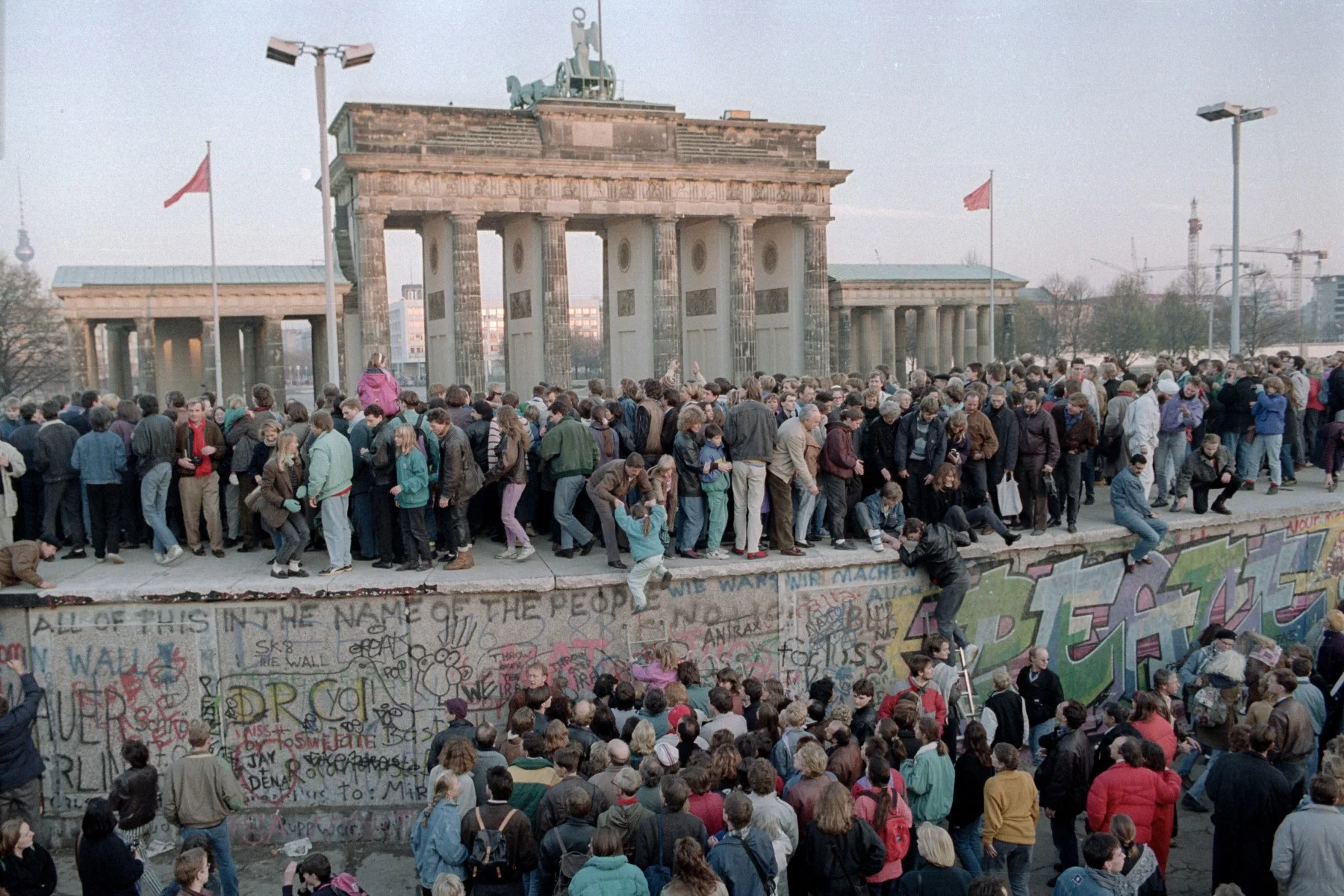
Berlin is larger than Paris and has more bridges than Venice
The German capital might not have the same romantic reputation as Paris or Venice, but it certainly outdoes both in size and infrastructure.
Covering roughly 890 square kilometers, Berlin is one of Europe’s largest capitals and nearly nine times the size of Paris. Despite its vast area, the city feels far more spacious, with plenty of parks, lakes, and green spaces breaking up the urban landscape.
Similarly surprising, Berlin also has more bridges than Venice (between 969 and 2,100 in total). Thanks to its network of lakes, canals, and waterways, the city is one of many to claim the nickname “Venice of the North.”
Germany has a town encrusted with diamonds
At first glance, Nördlingen (in the state of Bavaria) looks like a typical picturesque German town, with medieval walls, cobbled streets, and a towering church. But what sets it apart is the fact that it sits inside a 15-million-year-old meteor crater.
The Ries Crater, formed by a massive asteroid impact, stretches 25 kilometers wide, making Nördlingen one of the very few towns in the world built entirely within an ancient impact site.

Even stranger, many of the town’s buildings contain tiny diamonds, formed from the intense pressure of the asteroid collision. Scientists estimate there are about 72,000 tons of micro-diamonds embedded in the local stone. The stone was used to construct many of Nördlingen’s buildings, including the Saint George’s Church, giving the structures a subtle sparkle.
So, if you ever visit, you’re literally walking on diamonds. Just don’t expect to get rich by chipping away at a wall.
Angela Merkel was made into a Barbie doll
In 2009, Mattel celebrated 50 years of Barbie by producing a doll of Angela Merkel, Germany’s first female Chancellor. This one-of-a-kind doll was unveiled at the International Toy Fair in Nuremberg, Germany.
The Angela Merkel Barbie featured the Chancellor’s signature strawberry-blonde bob hairstyle and was dressed in an elegant black pantsuit with low-heeled shoes, reflecting Merkel’s typical professional attire. The doll means to honor Merkel as a role model for women worldwide, celebrating her leadership and influence.
Unfortunately for collectors, though, the doll was a unique creation and was not made available for sale to the public.
Albert Einstein once worked at Oktoberfest
Before he became one of the most famous scientists in history, Albert Einstein worked at Munich’s Oktoberfest. In 1896, at just 17 years old, he helped install electric lighting in the Schottenhamel tent, the festival’s oldest and most iconic beer tent. At the time, he was working for Einstein & Cie, his father’s electrical engineering company, which was contracted to provide illumination for several Oktoberfest tents.

Electricity was still a relatively new addition to Oktoberfest, and though young Einstein’s contribution was purely technical, his work helped modernize the festival. While he would later revolutionize our understanding of the universe, for a brief moment, the future Nobel Prize winner was just another teenager working behind the scenes of Germany’s most famous beer festival.
Facts about Germany’s food scene
Germany is spoilt for choice when it comes to beer, bread, and bratwurst
When it comes to food and drink, Germany doesn’t do things by halves – especially when beer, bread, and bratwurst are involved. The country is home to over 1,500 breweries producing more than 5,000 different types of beer. From crisp Pilsners to malty Bocks and refreshing Weizenbiers, there’s a brew for every taste.
Bread is just as serious a business in Germany, with more than 3,200 varieties ranging from hearty rye loaves to delicate pretzels. Each region has its own specialty, like Schwarzbrot (dark rye bread) in the north and Brezn (pretzels) in Bavaria.
And then there’s the bratwurst. The country has over 1,200 types of sausages and over 40 regional varieties of bradwurst. Whether grilled over an open flame in Thuringia, served with curry ketchup in Berlin’s famous currywurst, or enjoyed in a crusty roll at a beer garden, bratwurst is a staple of German cuisine.
Germans eat over 800 million currywurst each year
Speaking of sausages, the currywurst holds a special place in Germany’s culinary culture. Each year, Germans consume over 800 million currywursts, with approximately 70 million eaten in Berlin alone.
The origins of currywurst trace back to 1949 when Herta Heuwer mixed ketchup with curry powder to create a unique sauce. She served it with grilled pork sausages, and that’s how the beloved German fast-food staple was born. The innovative dish quickly gained popularity among construction workers rebuilding post-war Berlin, leading Heuwer to patent her sauce under the name “Chillup” in 1951.

Today, currywurst is ubiquitous across Germany, available at snack stands, diners, and street food vendors. It’s typically served with fries or bread rolls and has become an integral part of German street food culture. There was even a museum in Berlin dedicated to the popular sausage.
Germany is Europe’s largest beer producer
With its world-famous beer culture, it’ll come as no surprise that Germany is the EU’s top beer producer. Brewing over 84 million hectoliters annually, the country produces nearly a quarter of all beer in the EU.
Despite its reputation as a beer-loving nation, Germany isn’t actually the biggest consumer. It ranks seventh worldwide in per capita beer consumption, with Germans drinking an average of 93.3 liters per person each year. While that’s a respectable amount, it’s still behind countries like Czechia, Austria, Poland, Ireland, Lithuania, and Spain.
One of Germany’s most popular foods is actually Turkish
Walk into any German city, and you’ll likely spot a döner kebab shop on almost every corner. Unsurprisingly, this beloved fast food isn’t originally German; it’s Turkish.
The story goes that in the 1970s, Turkish expat Kadir Nurman introduced the modern döner kebab in Berlin, adapting the traditional dish by serving it in flatbread with fresh salad and sauces.
Since then, döner has become a national favorite, rivaling even bratwurst and currywurst. Germans consume around 1.3 billion kebabs each year, with 400,000 consumed daily in Berlin alone.
Other facts about Germany
Germany has the world’s largest cuckoo clock
If you love traditional Black Forest craftsmanship, head to Schonach im Schwarzwald, where you’ll find the largest cuckoo clock in the world. This massive working clock stands nearly 5 meters high and functions just like a traditional cuckoo clock – only on a much grander scale.
The clock was built by local craftsman Josef Dold and took over five years to complete. Every hour, the massive cuckoo bird, weighing about 150 kilograms, emerges to announce the time with a signature call. Visitors can even step inside the clock to see its intricate wooden gears and mechanisms in action.

Germany is one of the world’s largest car producers
Everyone knows Germany loves cars. It’s home to the Autobahn, where drivers can legally test their speed limits on certain stretches of road, and some of the world’s best car museums and racetracks.
It’ll come as no surprise, then, that Germany is also one of the top car manufacturers in the world. Every year, the country produces over four million passenger cars for some of the biggest and most prestigious car brands in the world, including Volkswagen, BMW, Mercedes-Benz, Audi, and Porsche. At its peak, however, it was making more than five million vehicles annually, exporting them to every corner of the world.
German car brand Volkswagen remains one of the largest automotive manufacturers globally, selling around 9.24 million vehicles worldwide in 2023.
It’s illegal to run out of fuel in the Autobahn
Speeding down the Autobahn at 200 km/h might be perfectly legal in some stretches, but running out of fuel? That’s a big no-no. In Germany, stopping on the highway without a valid reason is illegal, and running out of gas is considered preventable negligence.
The reasoning behind this law is simple: the Autobahn is one of the world’s fastest and busiest highways, and stopping on it poses a serious safety risk. If your tank runs dry and you’re forced to pull over, you could face a fine and license suspension. But if your breakdown causes an accident, you might be in for even steeper penalties (including a prison sentence).
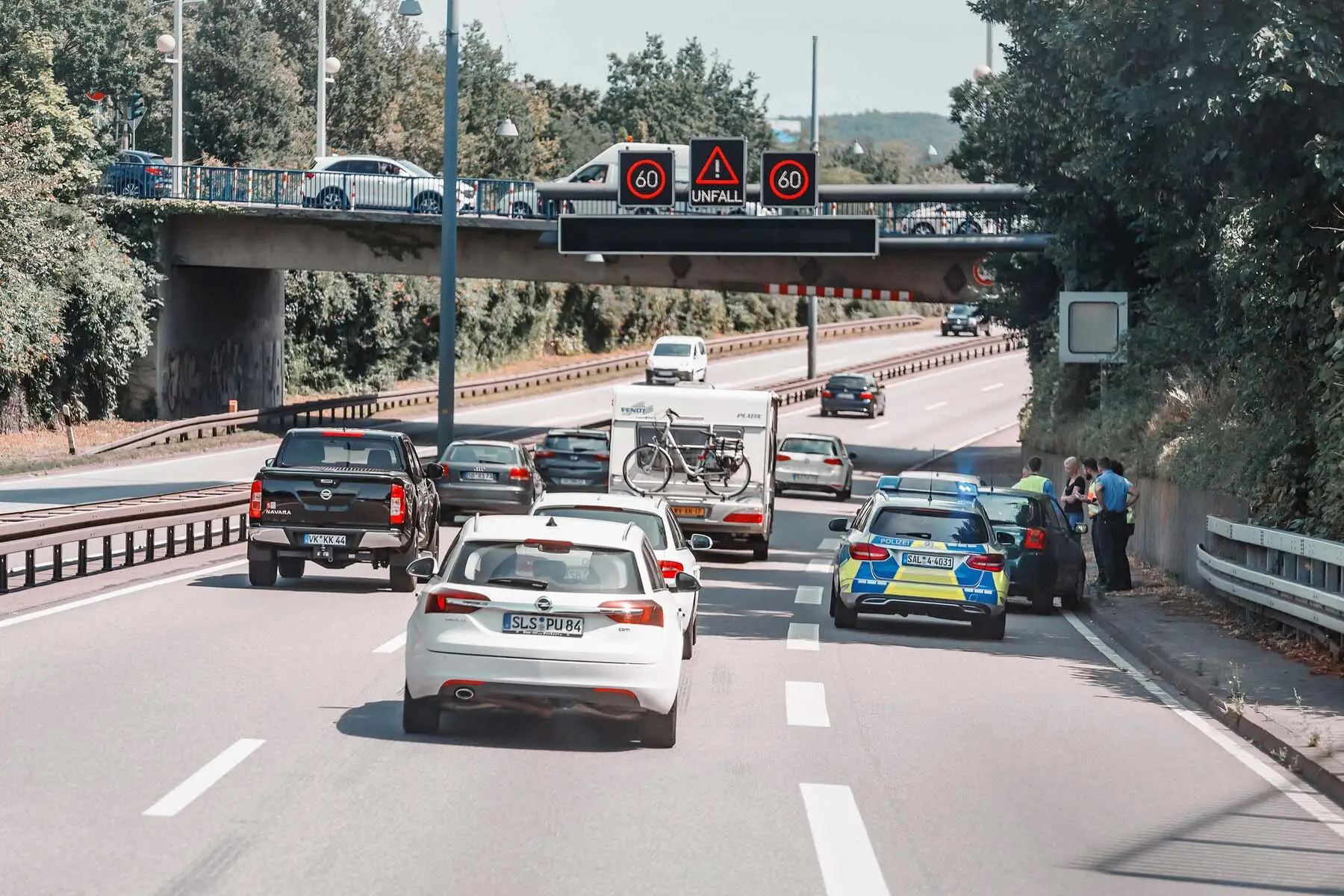
Prison escape is not punishable by law in Germany
In most countries, breaking out of prison is a serious offense. Not in Germany, though. Under German law, the desire to be free is considered a basic human instinct, so simply escaping from prison is not a crime on its own.
However, that doesn’t mean escapees get off scot-free. While the act of escaping itself isn’t punishable, criminals can still face legal consequences if they commit other violations in the process. For example, damaging property, assaulting guards, or stealing a getaway vehicle are all punishable crimes. And, of course, once they’re caught, they’re sent straight back to finish their sentence (plus any additional time for other offenses).
So, while Germany technically doesn’t criminalize the act of a prison breakout, very few criminals successfully escape – and even fewer manage to stay free for long.
Germany is one of the greenest countries in the world
Despite what the car culture may imply, Germany is a global leader in environmental sustainability. The country has been at the forefront of green energy, recycling, and conservation efforts, making it one of the most eco-friendly nations on the planet.
Germany’s Energiewende strategy (energy transition) has pushed the country toward renewable energy, with wind, solar, and hydropower now supplying a significant portion of its electricity. On some days, the nation even produces more renewable energy than it consumes, allowing it to export excess electricity to neighboring countries.

Germany has the highest recycling rate in the world
When it comes to waste management, Germany also sets the bar high. With a recycling rate of over 69%, it has the highest waste recycling rate in the world – well ahead of most other developed nations.
This success comes down to strict waste separation laws and a highly efficient recycling system. Germans are required to sort their trash into different categories, including paper, plastic, glass, organic waste, and residual waste. The Pfand (deposit) system also plays a major role, encouraging people to return plastic and glass bottles by offering €0.25 refunds per item.
This system means that not only does less waste end up in landfills, but valuable materials like plastic, aluminum, and paper get repurposed.


